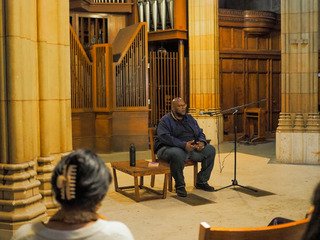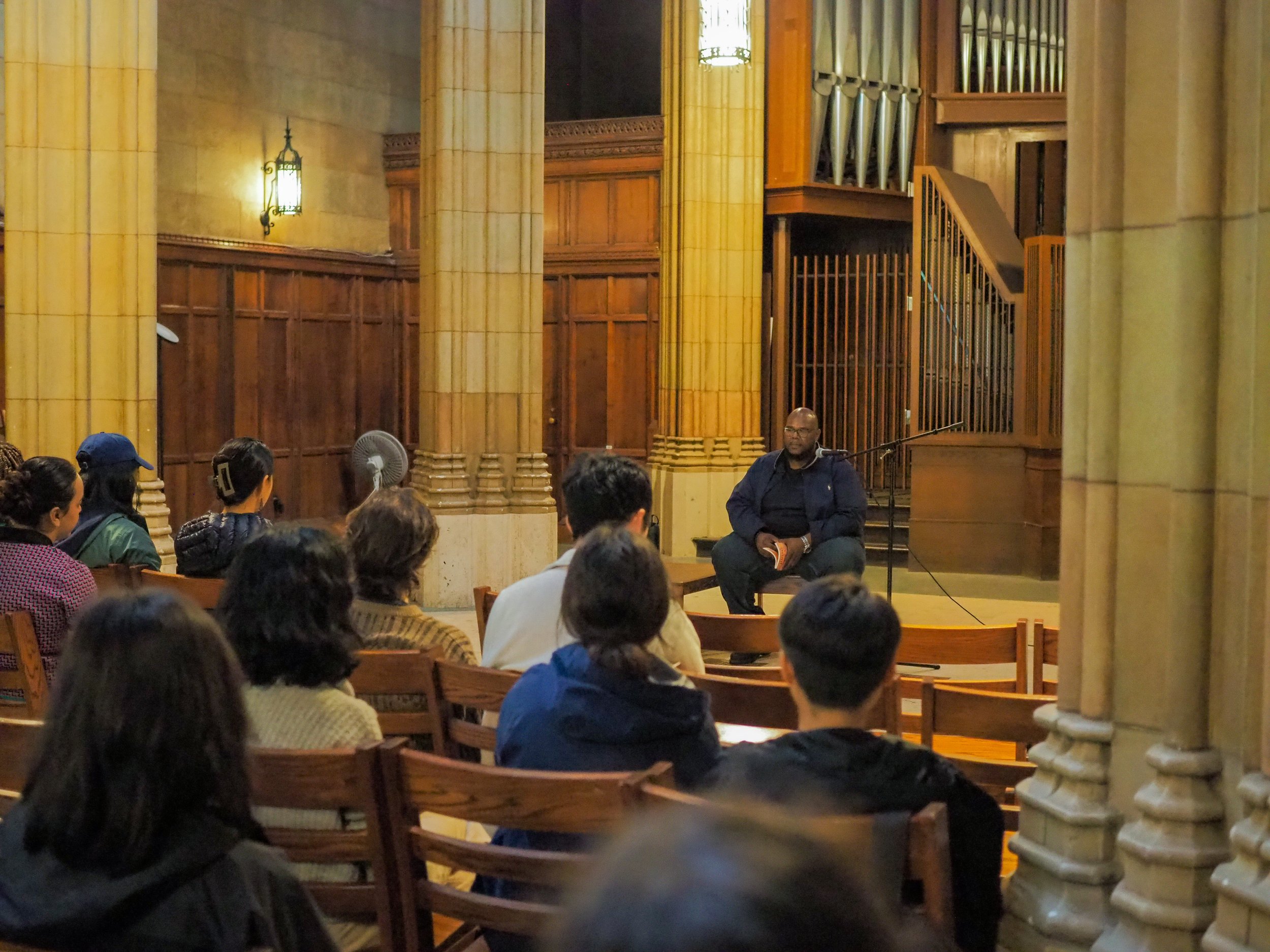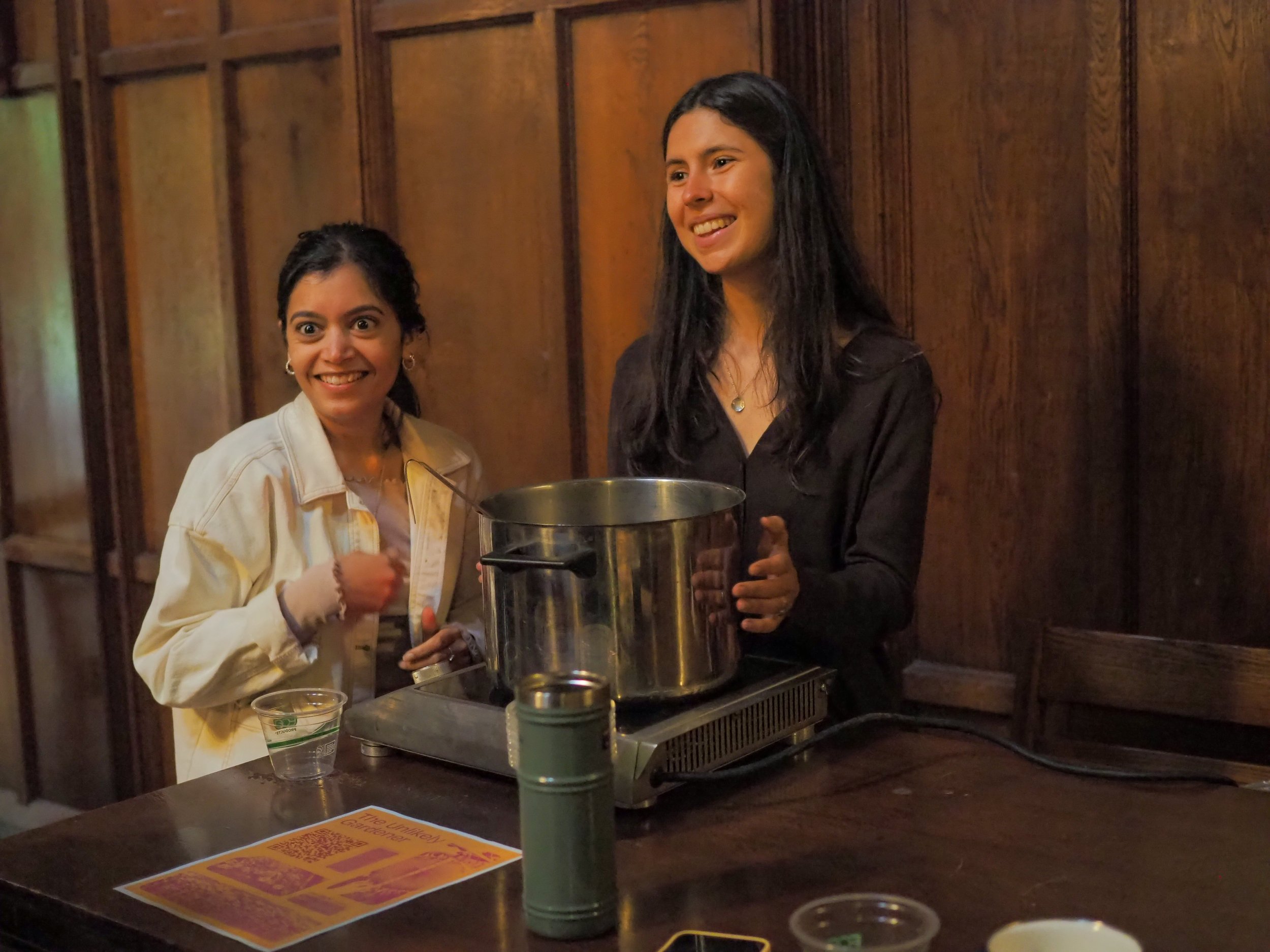On October 1st, a rainy Saturday afternoon, students gathered in Battell Chapel in Dwight Hall on Yale’s Old Campus to listen to Demetrius James give a reading of his piece “The Unlikely Gardener.” The event was co-hosted by YSFP, the Yale Undergraduate Prison Project, and the Yale Student Environmental Coalition. James is originally from the Bronx and is an alumnus of the Bard Prison Initiative. He recently founded the organization Project Oasis with the intention of planting an organic vegetable garden in every housing project in New York City.
Introduced by YSFP farm manager Kavya Jain ’25, James started by reading his piece and then answered several questions from the audience. Born in a “built environment without green spaces,” James’s first involvement with gardening and organic food occurred during his 18 years in prison. James managed his institution’s garden and found it to be an empowering, healthy, community-building, and life-altering experience.
James, the son of a sharecropper from South Carolina, spoke about the violent history of “black bodies and green spaces” and community skepticism toward gardening. James proposed an alternative to the commonly used term “food desert” to describe inner city spaces without proximate access to affordable produce or healthy food. Instead of “food desert”, James uses the term “food apartheid.” A desert is a naturally occurring, sustainable environment, he reminded listeners. The term “apartheid” acknowledges that these disparities are constructed by policies of segregation and state violence. They have been created intentionally, and they can be dismantled intentionally, James taught us. (To learn more about the distinction between these two terms, check out this “Beyond the Buzzwords” article with research from Yale Professor Dr. Dorceta Taylor, curated by Yale Center for Business and Environment resident fellow Tagan Engel, with contributions from former Lazarus Fellow Austin Bryniarski.)
James recounted the experience of eating spicy leaves fresh from a garden bed and talked about the power that comes from being able to identify with food and where it comes from. James additionally spoke about the ways that built environments, especially project housing, can be anonymous and make people feel stripped of individuality. “Land is connected to liberty,” he said. “If you have land, you can basically do what you want.” His initiative is about getting people to their land. “Public spaces,” James said, are “ours. We’re the public.” James sees gardening and land reclamation as a means to unite communities. Neighbors nurture each other.
James’s engaging talk—along with the YSFP’s cozy apple cider—provided a sense of warmth and inspiration on a dreary day. We are so grateful to James for bringing us his time, words, and wisdom, and to the partner organizations who helped make this event a reality.
To view all the photos from this event, please follow this link.



